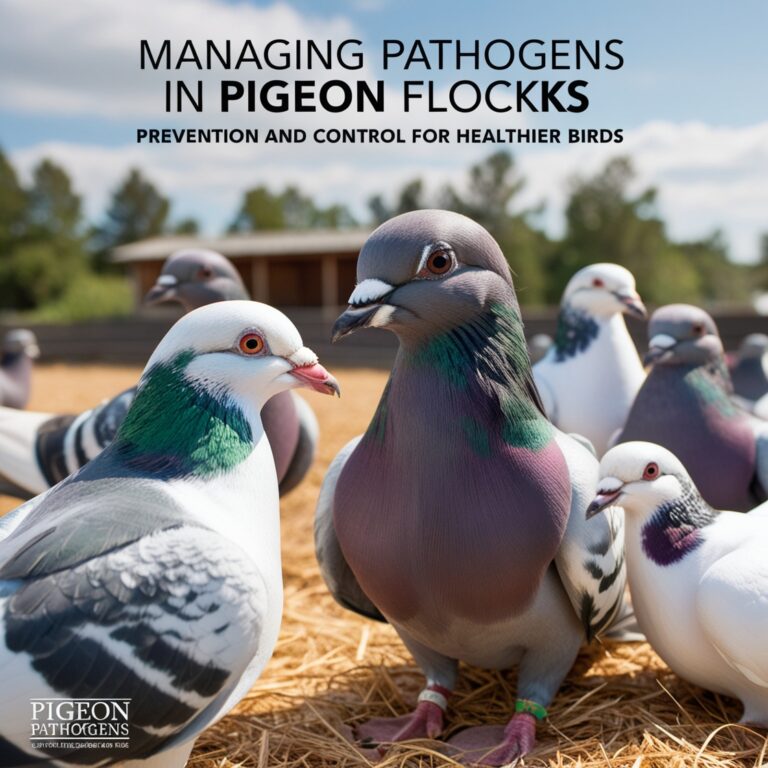Essential Practices for Health of pigeons
Proper Hygiene and Sanitation: Essential Practices for Health and Well-being
Essential Practices for Health of pigeons Hygiene and sanitation are fundamental to maintaining health and well-being in personal and community settings. Whether in homes, workplaces, or public spaces, ensuring proper hygiene and sanitation helps prevent disease spread and creates a cleaner, safer environment. This article explores the importance of these practices, their role in preventing illness, and actionable tips to implement them effectively.
Understanding Hygiene and Sanitation
Hygiene refers to the practices and habits that individuals adopt to maintain cleanliness and promote health for pet pigeons. Personal hygiene includes everyday activities such as handwashing, bathing, brushing teeth, and keeping clothes and surroundings clean. Sanitation, on the other hand, involves the broader systemic management of human waste, clean water access, and waste disposal to protect public health.
Both hygiene and sanitation are crucial to preventing infections, controlling the spread of communicable diseases, and promoting overall physical and mental health.

The Importance of Proper Hygiene and Sanitation
- Prevention of Disease: One of the primary reasons for practicing proper hygiene and maintaining sanitation is to prevent the spread of infectious diseases. Pathogens like bacteria, viruses, and parasites thrive in unclean environments. They can be transmitted through contaminated food, water, or surfaces and through direct human contact. Proper hygiene, such as regular handwashing with soap, reduces the risk of transmitting diseases like colds, flu, gastrointestinal infections, and even more severe diseases such as cholera or COVID-19.
- Improving Overall Health: Maintaining good hygiene helps protect not only physical health but also mental and social well-being. People who adhere to hygiene practices are less likely to suffer from skin infections, gastrointestinal issues, or dental problems. Cleanliness also has psychological benefits, as living in clean environments promotes a sense of well-being, reduces stress, and can even improve self-esteem.
- Public Health Impact: In addition to personal benefits, sanitation is critical for the health of entire communities. In areas where sanitation is poor, there are often outbreaks of diseases like diarrhea, cholera, and dysentery, which can affect large populations. Access to clean water, proper sewage disposal, and waste management are necessary to prevent these widespread health problems. For example, untreated waste can contaminate water supplies, leading to diseases that may affect entire communities.
- Improved Quality of Life: Practicing proper hygiene and maintaining sanitation contribute to a higher quality of life. Clean, well-maintained environments are more pleasant and healthier to live in. This also extends to professional settings, where maintaining cleanliness in offices, schools, and public spaces leads to increased productivity and a more positive atmosphere.
Actionable Tips for Maintaining Proper Hygiene
- Frequent Handwashing: Handwashing is one of the simplest yet most effective hygiene practices. Washing hands with soap and clean water can prevent the spread of many common infections, such as respiratory and diarrheal diseases. Be sure to wash hands:
- Before preparing or eating food
- After using the restroom
- After coughing, sneezing, or blowing your nose
- After touching garbage or handling animals
- Regular Bathing and Grooming: Daily showers or baths are crucial for removing dirt, sweat, and bacteria from the skin. In addition, practicing good oral hygiene, such as brushing teeth at least twice a day and flossing regularly, helps prevent dental issues like cavities and gum disease.
- Food Hygiene: Safe food handling practices are essential to prevent foodborne illnesses. Always wash hands before preparing food, and ensure that food preparation surfaces, utensils, and equipment are clean. Cook meat thoroughly, store food at proper temperatures, and avoid cross-contamination between raw and cooked foods.
- Personal Items and Clothing: It’s important to regularly wash and change clothes, especially undergarments. Wearing clean clothes prevents the buildup of bacteria and sweat that can cause infections and skin issues. Items like towels, bedding, and personal grooming tools should also be cleaned frequently to avoid contamination.
Sanitation Practices for a Healthy Environment
- Waste Disposal: Proper waste disposal is essential for maintaining cleanliness in both private and public spaces. Ensure that trash is stored in closed containers and regularly disposed of in designated areas. Recycling and composting help minimize waste, and hazardous materials like chemicals or medical waste should be handled according to local regulations.
- Sewage and Drainage Systems: Well-maintained sewage systems are crucial for preventing contamination of water supplies. Inadequate disposal of human waste can lead to the spread of diseases such as cholera, hepatitis, and typhoid. Communities must invest in effective drainage systems to prevent waterborne illnesses.
- Clean Water Access: Access to clean water is a fundamental requirement for maintaining hygiene and sanitation. Ensure that water sources for drinking, cooking, and cleaning are safe and free from contamination. Boiling water or using water purification methods in areas where water quality is poor can help prevent illness.
- Cleaning and Disinfection: Regular cleaning of living and working spaces is essential for maintaining sanitation. High-touch surfaces, such as doorknobs, light switches, and countertops, should be disinfected regularly to prevent the spread of germs. In homes and public places, the use of appropriate cleaning agents and disinfectants helps reduce the risk of infection.
- Pest Control: Uncontrolled pest populations can pose serious hygiene and sanitation risks. Pests such as rats, cockroaches, and flies are known carriers of diseases. Implement pest control measures, such as keeping food properly sealed, regularly cleaning living spaces, and disposing of waste correctly to minimize the presence of pests.
Hygiene and Sanitation During Emergencies
In times of emergencies, such as natural disasters or disease outbreaks, maintaining hygiene and sanitation becomes even more critical. Disruptions to clean water access and sewage systems can quickly lead to the spread of infectious diseases. In such cases, emergency measures like boiling water, using hand sanitizers, and ensuring proper waste disposal are essential to protect public health.
. Create a Clean Living Environment
Ensuring that your pet’s living space is clean is critical to its health. For pet pigeons, this includes regularly cleaning their cages, perches, and feeding bowls. Dirty environments can breed harmful bacteria and parasites, which can lead to infections or respiratory issues in birds. Cleaning the cage should be a daily task, with deep cleaning at least once a week. Always use pet-safe cleaning products and ensure the space is fully dry before reintroducing your pet to prevent irritation from cleaning residues.
2. Proper Waste Management
Regularly removing waste is essential for maintaining a healthy and odor-free environment. Feces and urine can quickly contaminate your pet’s living area, increasing the risk of bacterial and parasitic infections. Dispose of waste promptly and disinfect the area using non-toxic cleaners. Using a liner at the bottom of the cage or habitat can make this task more manageable and hygienic.

3. Hand Hygiene for Caretakers
After handling your pet or cleaning its environment, it is important to wash your hands thoroughly with soap and water. This minimizes the risk of transmitting zoonotic diseases—those that can be passed from animals to humans, such as salmonella or bird-borne pathogens. Always avoid touching your face, especially your mouth, eyes, or nose, after handling your pet until you’ve washed your hands.
4. Grooming and Personal Hygiene for Pets
For pets like pigeons, regular grooming ensures that feathers remain clean and healthy, reducing the risk of lice or mites. While pigeons typically bathe themselves by splashing in water, you can provide shallow, fresh water for this purpose. Regularly checking your pet for signs of parasites or skin issues is crucial for early detection and treatment of health problems.
5. Hygiene in Feeding
Proper feeding hygiene is as important as cleaning your pet’s living space. Always provide fresh food and water daily, and clean out any leftover food to prevent mold or bacteria buildup. Wash food bowls with warm water and mild detergent, rinsing thoroughly to remove any harmful chemicals.
6. Infection Control and Disease Prevention
To prevent diseases, pets should have regular checkups with a veterinarian and receive appropriate vaccinations. Infections can be spread through improper sanitation or through contact with other sick animals. Ensuring your pet’s cage or habitat is well-ventilated helps prevent respiratory diseases. For instance, bird species like pigeons are particularly prone to fungal infections if their environment remains damp or poorly ventilated.
7. Safe Interaction Between Pets and Children
If you have children, it’s important to teach them the proper ways to handle and interact with pets while maintaining hygiene. Children should wash their hands after playing with the pet and avoid bringing the animal close to their face to reduce the risk of infections.
8. Hygiene During Illness
If your pet shows signs of illness, such as lethargy, loss of appetite, or respiratory issues, isolating it from other animals and thoroughly cleaning its environment can help prevent the spread of any contagious diseases. Seeking veterinary care immediately is essential to diagnosing and treating the illness effectively.
Conclusion
Proper hygiene and sanitation are integral to maintaining personal and community health. By adopting good hygiene habits, individuals can prevent the spread of diseases, improve their quality of life, and contribute to the well-being of society. From handwashing and personal grooming to waste disposal and clean water access, every step toward better hygiene and sanitation brings us closer to healthier, safer environments. Whether in everyday life or during emergencies, these practices form the backbone of public health and well-being.
By prioritizing these essential habits, individuals and communities can foster a cleaner, healthier world, ultimately reducing the burden of preventable diseases and promoting longevity and happiness for all.







